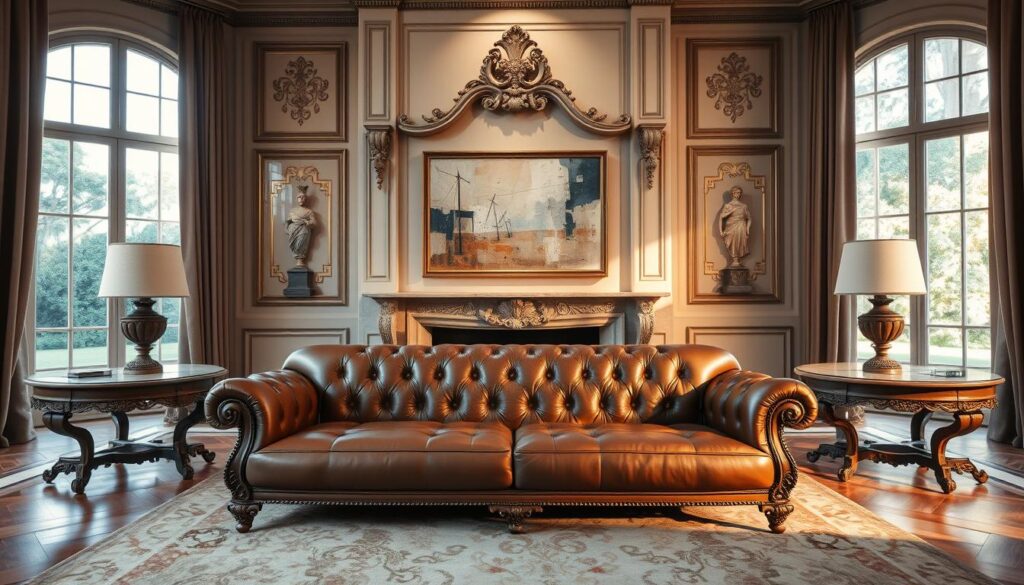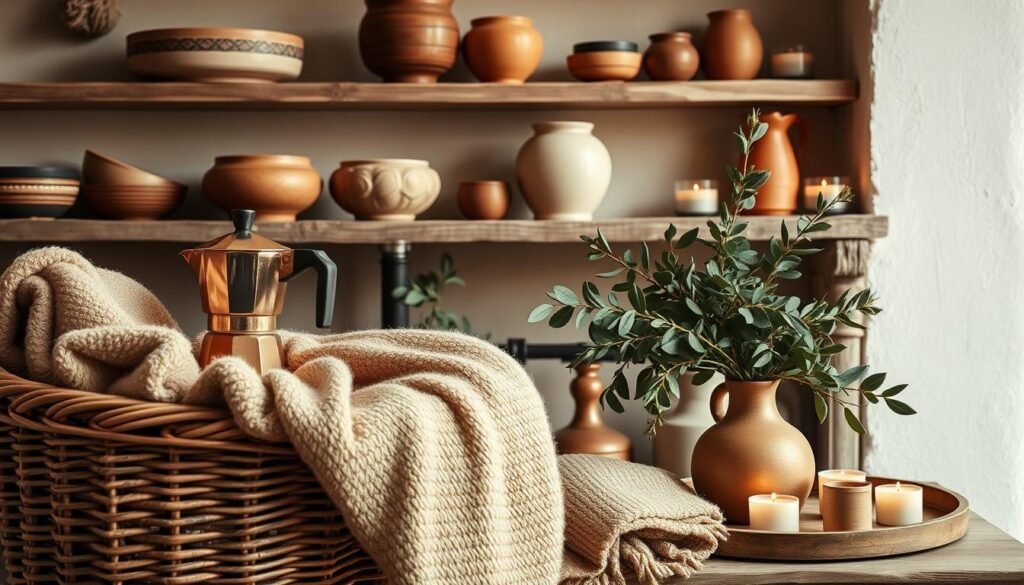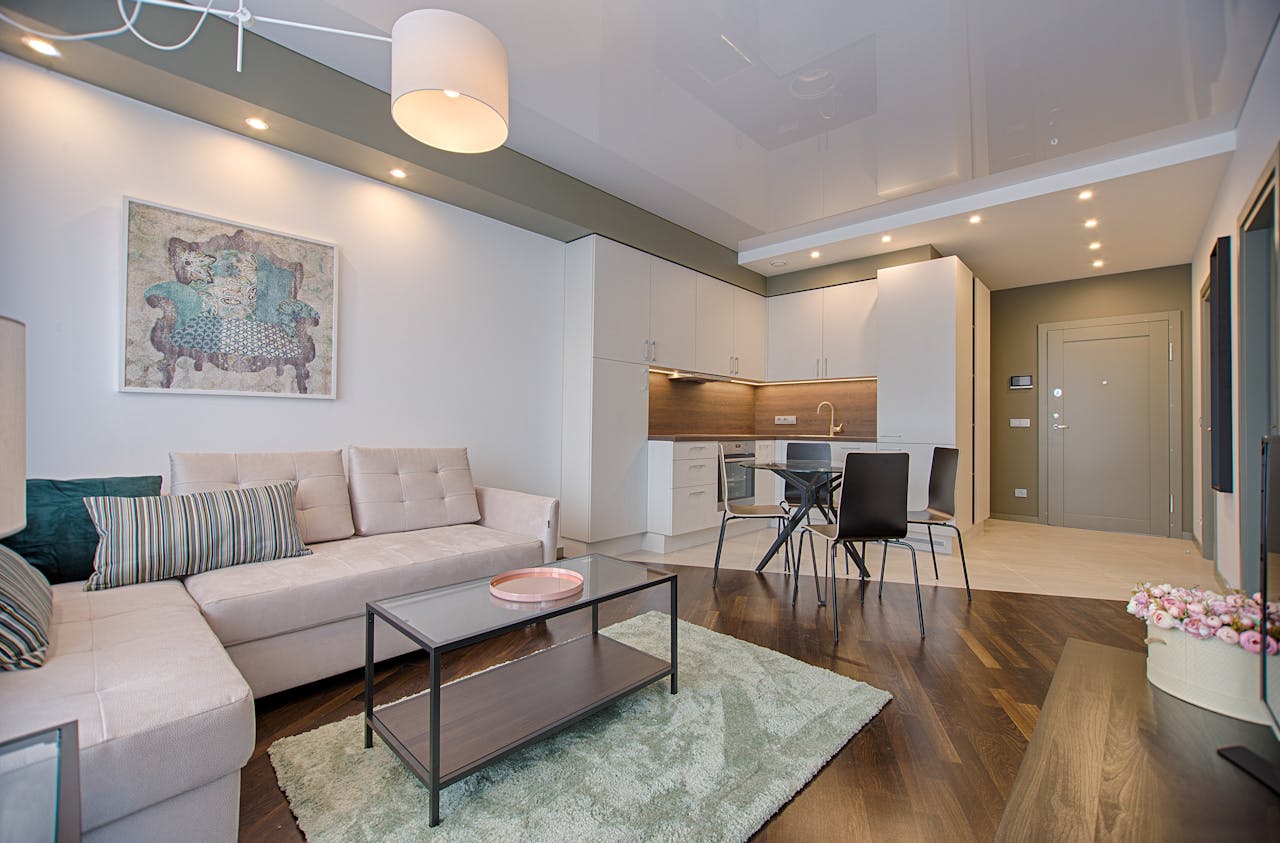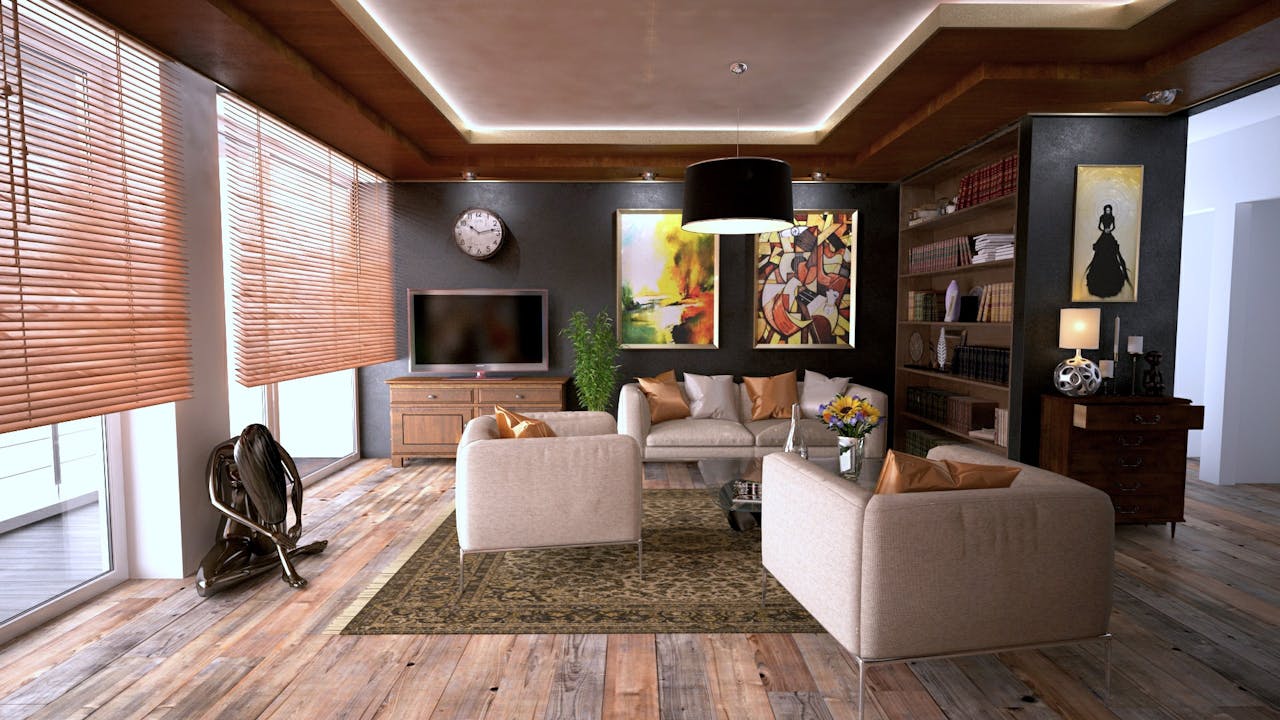Did you know homes with Italian-style elements can boost their value by up to 15%? This design is known for its elegance, warmth, and welcoming feel. It draws inspiration from Italy’s deep cultural roots.
Italian-style homes interior design is famous for its classic beauty. It mixes well with modern touches to make a special living area. Using arches, columns, and fancy details, homeowners can make a space that feels luxurious and classy.
As we dive into this design style, we’ll see how it can make your home look better. It creates a space that’s not just beautiful but also shows off your personal style.
Key Takeaways
- Italian-style design can increase a property’s value.
- Classic elegance and modern elements blend seamlessly.
- Arches, columns, and ornate details create a sophisticated ambiance.
- This design style exudes luxury and refinement.
- It reflects personal taste and creates a captivating living space.
What is Italian-Style Home Interior Design?
Italian home interior design is known for its cozy, inviting spaces. It combines traditional elements with modern touches. This creates a unique and welcoming atmosphere.
Characteristics of Italian Design
Italian interior design uses natural materials, warm colors, and classic elegance. It often includes terracotta tiles, marble, and rich wood tones. These elements make spaces feel warm and inviting.
It also focuses on natural light and open spaces. Large windows, high ceilings, and minimal window treatments let in plenty of light. This makes spaces feel larger and more welcoming.
Influence of Italian Heritage
Italy’s rich history and art heritage have shaped its interior design. From the Renaissance to today, Italian design reflects the country’s cultural and artistic achievements.
Antique furniture, vintage decorative items, and classical architectural elements show Italy’s historical influence. These elements are mixed with modern pieces to create a unique style.
Popular Italian Interior Design Styles
Tuscan and Mediterranean styles are favorites in Italian interior design. Tuscan interior design is known for its warm, earthy tones and rustic charm. It often features terracotta tiles, stone walls, and vintage decorative items.
| Style | Characteristics | Key Elements |
|---|---|---|
| Tuscan | Warm, earthy tones, rustic charm | Terracotta tiles, stone walls, vintage decor |
| Mediterranean | Light, airy, emphasis on natural light | Whitewashed walls, blue accents, natural textiles |
Mediterranean home decor is light, airy, and focuses on natural light. It often includes whitewashed walls, blue accents, and natural textiles. Both styles make Italian homes warm and inviting.
By understanding Italian interior design, you can make your home warm and welcoming. Incorporate these elements to create a cozy space.
Key Elements of Italian Interior Design
Italian home interiors focus on warmth, comfort, and a connection to nature. It’s not just about looks; it’s about making a space feel like home.
Color Palettes: Warm Tones and Earthy Shades
The colors in Italian decor are warm and earthy, like the countryside. Terracotta, sienna, and golden hues make spaces cozy and welcoming.
Softer shades like cream and beige balance these colors. They prevent the space from feeling too heavy.
Furniture and Material Choices
Furniture in Italian homes is sturdy, made from wood and stone. Reclaimed or distressed wood adds authenticity and character.
Italian design also uses marble and high-quality leather. These materials add elegance to the space.
Importance of Textures and Patterns
Textures are key in Italian design, mixing smooth and rough for interest. Marble countertops and terracotta tiles add depth.
Patterns like traditional Italian motifs and natural designs are popular. They connect the space to Italian heritage.
How to Incorporate Italian Design in Your Home
Adding Italian design to your home can change it for the better. It mixes old-world charm with today’s style. This approach makes your home feel welcoming and shows off Italian culture.
Blend of Modern and Traditional Styles
Italian design is all about mixing old and new. Start by pairing sleek, modern furniture with traditional touches. Think wooden details or vintage ceramics.
- Mix modern Italian furniture with traditional pieces to create a unique aesthetic.
- Incorporate traditional Italian materials, like marble and terracotta, into your modern decor.
- Use a neutral color palette as a backdrop for bold, statement pieces.
Emphasizing Open Spaces and Natural Light
Italian design loves open spaces and lots of light. This makes rooms feel bigger and more open. Here’s how to bring this into your home:
- Maximize natural light by using sheer curtains or blinds.
- Use mirrors strategically to reflect natural light and create the illusion of larger spaces.
- Opt for open-plan living areas to enhance the sense of spaciousness.
Key Decor Items to Consider
When decorating your Italian-style home, focus on these items:
- Artwork and Sculptures: Italian art is famous for its beauty and history. Choose pieces by Italian artists or sculptures that show Italian culture.
- Textiles: Italian fabrics and rugs add warmth and depth. They make your space feel cozy.
- Ceramics and Pottery: Use traditional Italian ceramics and pottery as decor or functional items. They bring Italian charm to your home.
By using these elements, you can make your home beautiful and welcoming. Focus on mixing old and new, open spaces, and choosing the right decor items. This way, you’ll have an Italian-inspired home that’s inviting and stylish.
Iconic Italian Furniture Brands to Explore
Looking to add Italian style to your home? Start with brands like B&B Italia, Cassina, and Poltrona Frau. These luxury brands have led Italian design for years. They offer stylish, sophisticated pieces that bring Italian elegance to any room.

B&B Italia: Innovation Meets Tradition
B&B Italia combines innovation with tradition perfectly. Founded in 1966, it respects traditional Italian craftsmanship while pushing design boundaries. Their furniture is both beautiful and comfortable, showing a commitment to quality.
Their iconic sofas and chairs blend modern design with comfort and function. Adding B&B Italia to your home brings italian inspired home accessories that are stylish and sophisticated.
Cassina: Timeless Elegance
Cassina has been a luxury furniture leader since 1927. It’s known for timeless elegance and honoring famous designers. Cassina’s furniture is characterized by sophisticated designs, quality materials, and attention to detail.
For classic Italian style, Cassina’s furniture is perfect. It’s not just beautiful but also durable, making it a great investment for luxury italian home furnishings.
Poltrona Frau: Luxe Leather Craftsmanship
Poltrona Frau is all about luxe leather craftsmanship. Founded in 1912, it’s known for stylish, high-quality leather furniture. The brand’s commitment to fine materials and traditional craftsmanship is unmatched.
Poltrona Frau’s leather sofas, armchairs, and more offer a luxurious seating experience. Adding them to your home brings the best of Italian luxury furniture.
Choosing the Right Color Scheme for Italian Interiors
Italian interior design is known for its elegance and warmth. Choosing the perfect color palette is key. The right colors set the mood and look of the space.
Earthy Tones for a Cozy Feel
Earthy tones are essential in Italian design, adding warmth and coziness. Terracotta, sienna, and golden brown remind us of the Italian countryside. These colors can be used on walls, furniture, or as decorative accents, making the space welcoming.
Bold Accents for Visual Interest
Bold accents add depth and interest to Italian interiors. Blues that remind us of the Mediterranean Sea or deep greens from Tuscany create striking contrasts. These colors can be used in furniture, artwork, or textiles.
The Impact of Light and Space
Light and space greatly affect how colors look in Italian interiors. Natural light makes earthy tones warmer and bold accents more vibrant. In low-light areas, choose colors carefully to avoid a dark feel. Lighter shades can make a space brighter and more inviting.
By mixing earthy tones, bold accents, and considering light and space, you can create a beautiful Italian interior. Whether it’s a cozy villa in Tuscany or a city apartment, the right colors are crucial. They bring the essence of Italian style to your home.
Lighting Techniques in Italian Home Design
In Italian homes, lighting is more than just a need; it’s a form of art. It combines natural light, chandeliers, and ambient lighting. This mix creates a unique atmosphere.
Chandeliers and Statement Fixtures
Italian design often highlights grand chandeliers and statement lighting. These pieces are not just lights; they’re art that adds elegance and sophistication.
When picking a chandelier, think about the room’s size and your decor’s style. A well-chosen chandelier can make a dining room or entrance hall feel more special.
Use of Natural Light
Italians love natural light, using big windows, skylights, and open plans to get it. This light brightens the space and connects indoors with outdoors, making it feel seamless.
To bring this into your home, think about bigger windows or mirrors to reflect light. This makes your spaces feel larger and more welcoming.
Ambient vs. Task Lighting
Italian homes use both ambient and task lighting well. Ambient lighting makes the space warm and inviting. Task lighting focuses on areas for activities, like reading or cooking.
| Lighting Type | Purpose | Examples |
|---|---|---|
| Ambient Lighting | General illumination | Ceiling fixtures, sconces |
| Task Lighting | Focused lighting for activities | Desk lamps, under-cabinet lighting |
By mixing these lights, you can make a space that’s both functional and beautiful. It captures the warmth and elegance of Italian design.
Flooring Options That Exude Italian Charm
The essence of Italian charm in home design is often found in the flooring. It can range from rustic terracotta to elegant marble. Italian homes often use terracotta tiles, marble, and hardwood flooring. Each option adds a unique aesthetic that enhances the charm of the space.
Terracotta Tiles: Rustic and Inviting
Terracotta tiles are a staple in traditional Italian design. They bring warmth and rustic charm to any room. Made from natural clay, they have a distinctive earthy tone that fits well with rustic Italian home interiors.
Their textured surface adds depth and character. This makes terracotta tiles a popular choice for those seeking an authentic Italian look.
Marble Flooring for Elegance
Marble flooring is perfect for a luxurious and sophisticated look. It has been used in Italian architecture for centuries. Its elegance is unmatched, adding a touch of modern Italian house design to any room.
Marble flooring makes a space feel larger and more opulent. It’s ideal for creating a grand entrance or a luxurious bathroom.
Hardwood for Warmth and Richness
Hardwood flooring is also popular in Italian homes. It offers warmth and richness to interior spaces. The natural grain of the wood adds complexity and beauty, making it versatile for both traditional and modern decor.
Hardwood floors are durable and can be refinished multiple times. This makes them practical for high-traffic areas.
When choosing flooring for your Italian-inspired home, think about the aesthetic you want. Whether it’s terracotta’s rustic charm, marble’s elegance, or hardwood’s warmth, each option can greatly enhance your space’s beauty and character.
Accessorizing with Italian Flair
Accessorizing is key to making your living space feel luxurious and welcoming. Italian interiors are known for their rich textures, bright colors, and beautiful decorative items.
Art and Sculptures from Italian Masters
Italian art and sculptures are famous for their beauty and history. Adding pieces from Italian masters or replicas can make your space feel authentic. Think about works by Caravaggio, Michelangelo, or modern Italian artists.

Textiles: Cushions, Drapes, and Rugs
Textiles are essential in Italian interior design. Luxurious fabrics like silk, velvet, and linen are used for cushions, drapes, and rugs. These materials add warmth and texture, enhancing the room’s look.
Ceramics and Pottery: A Touch of Tradition
Ceramics and pottery are traditional Italian crafts that add history and culture to your home. Look for pieces from places like Tuscany or Sicily. They can be used as decorative items or functional pieces.
| Accessory | Description | Examples |
|---|---|---|
| Art and Sculptures | Original or replica pieces by Italian artists | Caravaggio, Michelangelo |
| Textiles | Luxurious fabrics for cushions, drapes, and rugs | Silk, Velvet, Linen |
| Ceramics and Pottery | Traditional crafts from Italian regions | Tuscan pottery, Sicilian ceramics |
By carefully choosing and adding these accessories, you can boost the Italian feel in your home. This creates a space that is both stunning and culturally rich.
Common Mistakes to Avoid in Italian Design
To truly capture the essence of Italian style, it’s crucial to be aware of and avoid the most common design mistakes. Italian interior design is known for its warmth, elegance, and sophisticated use of luxury italian home furnishings. But, achieving this look is more than just picking the right furniture and decor. It requires a thoughtful and balanced approach to interior design.
Over-Retouching Space
One of the most common mistakes in italian style homes interior design is over-accessorizing or over-retouching the space. Italian design is about elegance and simplicity, not clutter. Too many decorative items can make a room feel chaotic rather than sophisticated.
To avoid this, select a few statement pieces, such as a beautifully crafted wooden cabinet or a stunning chandelier, and let them be the focal points of the room. This approach not only enhances the beauty of the pieces but also maintains the clean lines and openness that Italian design is known for.
Ignoring Balance and Harmony
Another critical mistake is ignoring the balance and harmony of the space. Italian design is not just about incorporating luxury italian home furnishings; it’s also about creating a cohesive look that is visually appealing. This means paying attention to the scale, color, and texture of the furniture and decor.
For instance, pairing a large, ornate sofa with a delicate, minimalist coffee table can create visual tension. Instead, aim for balance by selecting pieces that complement each other in terms of style and scale. This will help create a harmonious and inviting atmosphere in your home.
Underestimating the Role of Lighting
Lighting is a crucial element in italian style homes interior design, yet it’s often underestimated. Proper lighting can enhance the beauty of your luxury italian home furnishings and create a warm, welcoming ambiance.
To get it right, consider layering different types of lighting, such as ambient, task, and accent lighting. For example, use chandeliers or pendant lights as statement pieces, table lamps for task lighting, and floor lamps to highlight specific areas or features in the room.
| Common Mistake | Impact on Design | Solution |
|---|---|---|
| Over-Retouching Space | Makes the room feel cluttered and chaotic | Select a few statement pieces and maintain clean lines |
| Ignoring Balance and Harmony | Creates visual tension and discomfort | Choose furniture and decor that complement each other in scale and style |
| Underestimating the Role of Lighting | Can make the space feel dull and uninviting | Layer different types of lighting to create a warm and welcoming ambiance |
Bringing it All Together: Creating Your Italian Oasis
To make an Italian oasis, mix design with the Italian way of life. This way of life values comfort, elegance, and a bond with nature. Use mediterranean home decor and tuscan interior design.
Final Touches
Adding the final touches and personal items is key. Think about adding vintage pieces, family photos, and unique items. These make your space truly yours.
Embracing the Lifestyle
The Italian lifestyle is all about comfort and elegance. It’s about making a space where you can unwind and enjoy nature’s beauty. Add plants and a garden to bring the outdoors inside.
Further Inspiration
For more ideas, check out Italian design magazines and visit Italian homes. Also, follow designers who focus on mediterranean and tuscan styles. This keeps you up-to-date with the latest trends.



